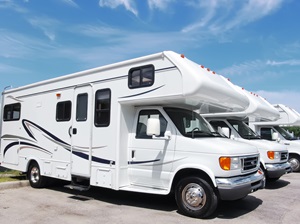As winter approaches, recreational vehicle (RV) owners must take steps to protect their vehicles from harsh weather conditions. Proper winter storage is crucial to maintaining the longevity and functionality of your RV. Following a few essential tips, you can keep your RV in good condition and ensure it is ready for your next adventure when the warmer months return.
Tips for Storing Your RV in Winter
The following are some tips to help winterize your RV effectively:
- Clean thoroughly. Remove any food items to prevent attracting pests. Clean the refrigerator, cabinets and all surfaces. Don’t forget to wash and wax the exterior to protect it from the elements.
- Drain water systems. One of the most critical steps is to drain all water from your RV’s systems to prevent freezing and damage. Empty the fresh water tank, gray and black water tanks, and the water heater.
- Protect the battery. Disconnect the battery and store it in a cool, dry place. If possible, use a trickle charger to maintain its charge over the winter months. This will help extend the battery’s life and ensure it’s ready to go when needed.
- Cover and seal. Invest in a high-quality RV cover to protect your vehicle from snow, ice and UV rays. Ensure all windows, doors and vents are sealed properly to prevent moisture from entering.
- Perform tire service. Inflate your tires to the recommended pressure, and consider using tire covers to protect them from the harsh winter weather. If possible, move your RV periodically to prevent flat spots from developing on the tires.
- Prevent pest infestations. To keep rodents and insects out, seal any openings where they might enter. Use mothballs or rodent repellent in areas prone to infestation. Check regularly for signs of pests throughout the storage period.
- Review your insurance policy. Ensure that your coverage is up-to-date and adequate to financially protect your RV from potential risks such as theft, vandalism or weather damage. Some policies may offer specific provisions for stored vehicles, including reduced premiums or additional coverage options. It’s also a good opportunity to discuss any changes or updates with your insurance provider to ensure your coverage meets your current needs.
Learn More
Contact Huffman Insurance Agencies to discuss additional ways to protect your RV from potential hazards.
This blog is intended for informational and educational use only. It is not exhaustive and should not be construed as legal advice. Please contact your insurance professional for further information.